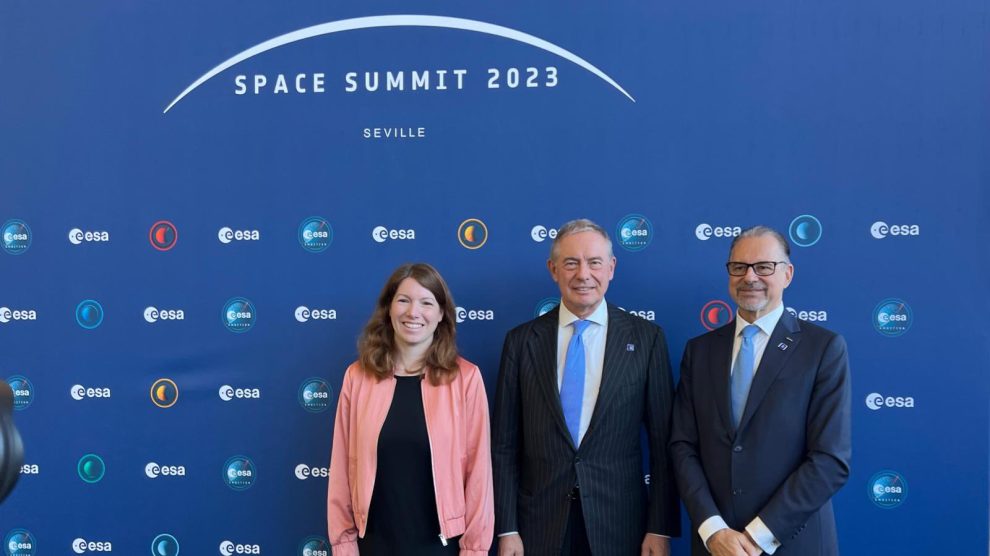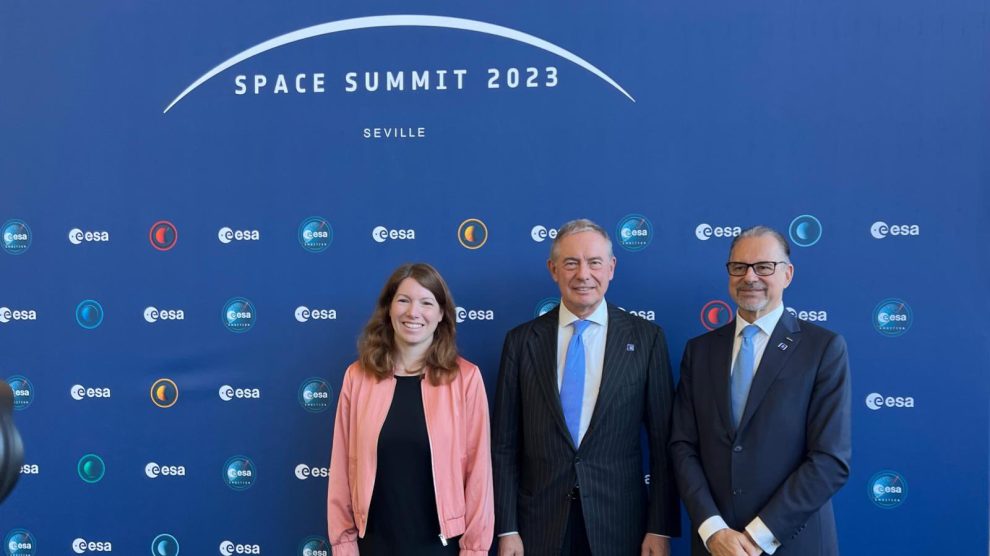
SEVILLE (Spain), Nov 7 (NNN-AGENCIES) — Italy-France-Germany signed a joint declaration aimed at restarting the European Union’s space industry and promoting the construction of EU launch pads, spaceports and spacecraft.
On Monday, countries including Germany, France and Italy signed an agreement to help the European space industry develop independently and ensure access to orbit.
This agreement also paves the way for Italian space corporation Avio to commercialize its Vega launcher services.
At the European Space Agency (ESA) Summit taking place in the Spanish city of Seville, Italian Business Minister Adolfo Urso, French Economy Minister Bruno Le Maire and German Deputy Prime Minister Robert Habeck signed a joint declaration aimed at restarting the European Union’s (EU) space industry and promoting the construction of EU launch pads, spaceports and spacecraft.
Speaking at the ESA conference, Urso assessed the above agreement as “a qualitative leap that will have an impact on other strategic areas, is a success of the trilateral format and can pave the way for broader convergence of defense industry policies.”
This tripartite agreement is very important in maintaining normal operations of the EU space sector, paving the way for an agreement within the ESA, which is expected to be approved when the conference ends.
Related to the above conference, 22 ESA member countries also agreed to provide financial support for the long-delayed Ariane 6 rocket development project.
Accordingly, the Ariane 6 project will receive support worth 340 million euros, after negotiations between France, Germany and Italy, which are the three countries with the highest financial contributions for ESA.
The Ariane 6 project is expected to be put into its first test in 2024, four years later than the original plan.
In addition, the agreement between France, Germany and Italy also paves the way to provide financial support worth 21 million euros for ESA’s Vega-C rocket development project. Financial support for Vega-C will begin in 2026.
This agreement also guarantees 4 Ariane 6 rocket launches and 3 Vega-C rocket launches each year.
Europe’s space industry is facing increasing competition, not only from the US but also from other countries with emerging space industries such as China and India, as well as private companies operating in this field like billionaire Elon Musk’s SpaceX.
Speaking at the conference, ESA Director General Josef Aschbacher said that the low Earth orbit region is creating a new economic opportunity and this will change space exploration, including the participation of private companies.
He said that ESA will organize a competition among European innovation and creativity companies to develop a cargo spacecraft to the International Space Station (ISS) in 2028 and then returns to Earth.
If successful, this will be the first step for ESA to deploy independent missions with European astronaut flights into space.
According to Aschbacher, ESA has raised 75 million euros to finance the first phase of the above cargo ship construction project.
Evaluating this idea, CEO of a startup called Exploration Company, Helene Huby, said that the project to develop a cargo spacecraft shows Europe’s new ambition. — NNN-AGENCIES





